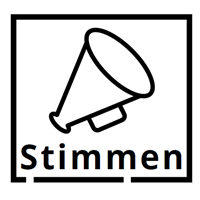Speech app recognizes origin of Frisian user
UG hits lucky shot with Citizen Science
On 20 September the University of Groningen, European Capital of Culture project Lân fan Taal and regional broadcasting company Omrop Fryslân launched an app that can detect where the Frisian user is from. The app analyses whether the pronunciation of the voice commands fits Klaaifrysk, Stadsfries, Stellingwerfs or one of the many other varieties of the Frisian language. The app was developed by the UG team of researchers Stimmen fan Fryslân [Voices of Fryslân] and will provide us with a wealth of linguistic information, bringing Frisian voice control one step closer. Stimmen fan Fryslân is a good example of Citizen Science: everyone can make a valuable contribution using a smartphone or tablet or via the Stimmen website. The app can now be downloaded for free via iTunes and Google Play.
Frisian is spoken everywhere in Fryslân/Friesland but it varies immensely per region, says linguist Nanna Hilton. ‘The word “to cook”, for example, occurs in the Frisian language area as ‘siede’, ‘siere’ or ‘kokje’. The word ‘Saturday’ also has several variants: ‘sneon’, ‘saterdei’ and ‘saterje’. These examples reveal which variety of Frisian is spoken. The app recognizes small differences and lets you know immediately whether your pronunciation is characteristic of a certain region.’
Schools
On 20 September students of Dockingacollege in Dokkum were the first to try the app. This school year Hilton and her colleagues will visit all secondary schools in Fryslân to present an educational programme on linguistics and multilingualism and to collect as much speech data as possible. Omrop Fryslân is joining in and focuses on the app and linguistics throughout the week.
Linguistic research
The speech app is just one of the ways in which Hilton wants to involve Frisians in her research. ‘We aim to use the app to collect as much data as possible about the Frisian language and its distribution, and then study this data. In the future we could also use the data to develop speech recognition apps, like Siri, for the languages and dialects that are spoken in the Northern Netherlands. Anyone can contribute to the research project. The results will be presented in the course of 2018, when Leeuwarden and Fryslân figure as European Capital of Culture, at Lân fan Taal at the Oldehoveplein in Leeuwarden and other venues.

Not only Frisian
Fryslân is an ideal testing ground for linguists. With a wide variety of languages and dialects, it is the most ‘linguistic’ province of the Netherlands. At this moment the accent recognition only works for Frisian, but Hilton emphasizes that the app is certainly not meant for Frisians or the Frisian language only: ‘People can contribute to it in any language: Lower Saxon dialects, mixed dialects or migrant languages. This way we are creating a rich source of information about language use that my fellow linguists and I at the Faculty of Arts can study.
| Last modified: | 11 January 2023 10.11 a.m. |
More news
-
24 March 2025
Beyond 'Hey Siri': towards Inclusive Speech Technology
Can you imagine a world where speech technology is not just about asking your smart speaker about the weather, but one where it gives a voice to those with speech disorders, helps support endangered languages, and understands sarcasm?
-
12 March 2025
Breaking news: local journalism is alive
Local journalism is alive, still plays an important role in our lives and definitely has a future. In fact, local journalism can play a more crucial role than ever in creating our sense of community. But for that to happen, journalists will have to...
-
11 March 2025
Student challenge: Starting Stories
The Challenge Starting Stories dares you to think about the beginning of recent novels for ten days.
